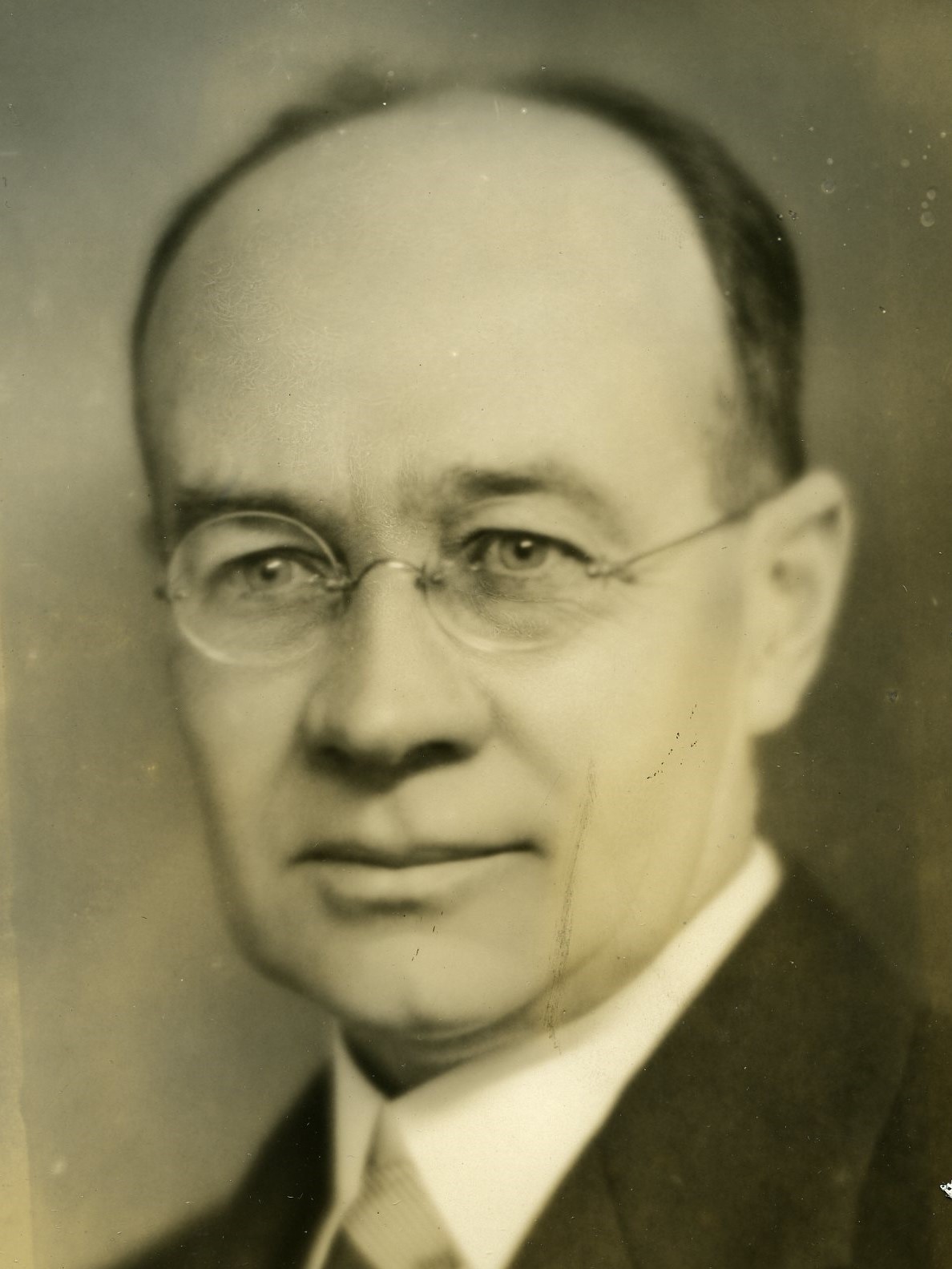Writer
Centurion, 1921–1975
Born 25 February 1879 in Jersey City, New Jersey
Died 23 January 1975 in Washington, District of Columbia
Buried Union Cemetery , Chatham, Massachusetts
, Chatham, Massachusetts
Proposed by Paul Elmer More and John W. Cunliffe
Elected 7 May 1921 at age forty-two
Century Memorial
Like many men who began life with delicate health, Albert W. Atwood had incredible vitality; he died in his ninety-sixth year. Although he was refused life insurance by three insurance companies when he was in his twenties, he led a full and active life, and worked hard. In all his dealings he was always truthful, almost to a fault, and acquired a legion of devoted admirers. For him, the better part of valor was not discretion. He never called a spade by any other name. This was one of his most endearing traits.
Born in 1879 in Communipaw, now part of Jersey City, Atwood developed a taste for literature at Amherst, where he joined Alpha Delta Phi. He took an active part in its literary programs, which led later to his election to Phi Beta Kappa, and eventually to honorary degrees from Amherst, Princeton, and Gallaudet College. It was at Amherst that he came to know and admire Gilbert Grosvenor, founder of the National Geographic Society, who was then, with his twin brother, an intercollegiate doubles tennis champion. This friendship was to influence both their lives fifty years later.
Beginning as a reporter on the New York Sun, Atwood later wrote for the Review of Reviews and for McClure’s. For several years he edited Business America and then became financial editor of Harper’s Weekly. He attained a national reputation as a financial analyst, and was among the first to advocate investment trusts. In article after article he spelled out the weaknesses of call money, stock manipulations, and other practices.
When Albert married Sarah Pratt in 1906 he found a worthy companion, one who led an equally full and fruitful career, always immersed in good works. Later on it became a standing joke among their friends that she was president of all the organizations of which he was not already president.
After 1914 Albert gave up editorial work to become an author and magazine writer and never worked for a salary thereafter. He and Sally moved from New York to Princeton for ten years, where they enjoyed university life and had close relations with members of the Princeton Faculty Club.
At this time he began a free-lance career by writing for the Saturday Evening Post, then under George Horace Lorimer, which lasted twenty-three years. During this period he wrote some two hundred articles and more than a thousand editorials.
Throughout the years at Princeton, the Atwoods began taking long vacations in the Western states. In 1920 Albert was among the first to write articles urging the saving of the California redwoods. Of his many Western articles, the most important were four on the Colorado River written in 1926.
Albert was also a frequent contributor to the National Geographic, specializing in the Eastern states and Washington. This association resulted in the publication of twenty-four articles, each of which was almost equivalent to a book.
In the field of public service Albert managed to make time for civic, educational, cultural, business, and religious activities, which became a career in themselves. As a member of the District of Columbia Library board for thirty-seven years and as its president for the last twenty-four, he was a leader in the growth of Washington’s library system. For twenty years he was also chairman of the board of Gallaudet College (the only college for the deaf in the world) and wrote the 100th anniversary history of the college. He was at various times president of the Washington Rotary Club, the local chapter of the English-Speaking Union, the District of Columbia’s Travelers Aid Society, and the Washington Society of Fine Arts. He was also a trustee of the Madeira and Sidwell Friends schools, and a member of the board of the Washington Gas Light Company.
Once asked if he had any hobbies, in view of all these activities, Albert answered no, but added that he was interested in everything except cards, which he detested. Then he added, “I like people, all kinds of people.”
Albert was always gregarious. From 1908 until 1970 he continued his famous stag parties on his birthday, at which there were often more than a hundred guests. He belonged to many clubs, including The Century, and was instrumental in starting The Century dinners in Washington, which have become annual events.
In later years he was much preoccupied with helping others. He considered his own life to have been full of joys and blessings. His chief regret seems to have been that he had not done more deeds of kindness along the way. This seems odd in view of a life dedicated to good works.
Albert Atwood died on January 23, 1975.
Waldron Faulkner
1976 Century Association Yearbook

